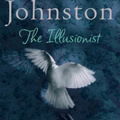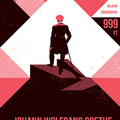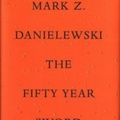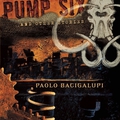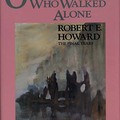Erlend Loe: Naïve. Super
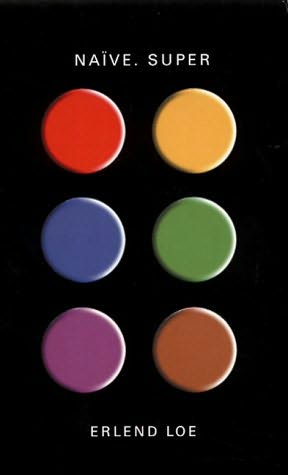
After reading Doppler and its sequel, I grew to love Erlend Loe very much and I could hardly wait until I had the chance to read another one of his books. And Naïve. Super was no disappointment – just like in the case of the two Doppler novels, I read this with a constant smile on my face, the only difference being the quality of my smile. While the Doppler novels were often screamingly funny or made me laugh in a sarcastic/slightly evil kind of way, Naïve.Super put a soft, glowing, happy smile on my face throughout.
The novel doesn’t have a story proper so I won’t dwell too long on the plot – partly because it’s forgettable, and partly because Naïve. Super happens to be about non-action and not about action. Just to give you some idea though, the novel is about a couple of months period in the life of a 25-year-old young man. During these months, our unnamed (?) protagonist systematically burns all the bridges between himself and society, he drops out of university and moves into the temporarily empty flat of his brother where he spends his days day-dreaming, throwing a ball around, playing with a silly children’s toy which involves some hammering, compiling lists and, in general, doing nothing. In the meantime, he tries to figure out how the things of the world are interconnected and whether it’s possible that there’s a happy ending to the events going on.
Maybe it’s only because I read Doppler before reading Naïve. Super and I tend to compare everything by Erlend Loe to it, but I feel that this novel is the prequel to Doppler in many respects. For instance, the withdrawal from society is a central theme in both novels, childish/childhood activities play an important role in both of them, and both Doppler and the main character of Naïve. Super tend to stand apart and adopt an ironic, critical point of view, but neither of them takes himself too seriously or pretends to be some infallible wiseguy. By the way it’s interesting that some topics are covered in both novels in almost exactly the same way, e.g. the main characters of both novels tend to get involved in long trains of thought about the fact that they know too many unnecessary facts, they are too clever, but all this cleverness is no advantage whatsoever, instead, it makes their lives more difficult.
Anyway, Naïve. Super is a good novel on its own as well. It’s a nice and simple read which makes you wonder dreamily about life and the world. And even though the main character might be a trifle too naïve for a 25-year-old, I was happy to live in his mind and to wonder with him about questions such as where his childhood enthusiasm (which enabled him to ski for hours until he fainted because of hunger) drained away; and I enjoyed reading his lists about important and not so important things, or his musings about the nature of time.
The novel doesn’t have a story proper so I won’t dwell too long on the plot – partly because it’s forgettable, and partly because Naïve. Super happens to be about non-action and not about action. Just to give you some idea though, the novel is about a couple of months period in the life of a 25-year-old young man. During these months, our unnamed (?) protagonist systematically burns all the bridges between himself and society, he drops out of university and moves into the temporarily empty flat of his brother where he spends his days day-dreaming, throwing a ball around, playing with a silly children’s toy which involves some hammering, compiling lists and, in general, doing nothing. In the meantime, he tries to figure out how the things of the world are interconnected and whether it’s possible that there’s a happy ending to the events going on.
Maybe it’s only because I read Doppler before reading Naïve. Super and I tend to compare everything by Erlend Loe to it, but I feel that this novel is the prequel to Doppler in many respects. For instance, the withdrawal from society is a central theme in both novels, childish/childhood activities play an important role in both of them, and both Doppler and the main character of Naïve. Super tend to stand apart and adopt an ironic, critical point of view, but neither of them takes himself too seriously or pretends to be some infallible wiseguy. By the way it’s interesting that some topics are covered in both novels in almost exactly the same way, e.g. the main characters of both novels tend to get involved in long trains of thought about the fact that they know too many unnecessary facts, they are too clever, but all this cleverness is no advantage whatsoever, instead, it makes their lives more difficult.
Anyway, Naïve. Super is a good novel on its own as well. It’s a nice and simple read which makes you wonder dreamily about life and the world. And even though the main character might be a trifle too naïve for a 25-year-old, I was happy to live in his mind and to wonder with him about questions such as where his childhood enthusiasm (which enabled him to ski for hours until he fainted because of hunger) drained away; and I enjoyed reading his lists about important and not so important things, or his musings about the nature of time.
Speaking about time – the nicest thing in the novel (for me) is that the protagonist gives himself enough time for everything: time to think, to play, to rage, to day-dream, to categorize things – and to find his peace with the world while doing all this. I believe it’s a truly amiable personality trait if someone can get lost in all this – perhaps useless – wondering, thinking, path-finding to such a great extent as the main character of this novel can. Perhaps I’m just jealous of him, because I’m not like this, but I definitely grew to love this boy very much.
Finally some words about the postmodern traits of this novel. Naïve. Super is full of unusual textual elements, such as lists, the results of library catalog searches, faxes and emails, and these are not there by accident at all. For instance, I think it’s a lovely episode (and it shows us how innocent the protagonist’s mind is) when the main character and his brother run searches in the library catalog for fun, and while his brother searches for obscene words, the protagonist runs a query for „ball” and „clock” – he’s interested in such ingenuous things. So I think it’s worth while to pay attention to these small details which may seem to be there only to fill up some space – if you do this, you may also find out the name of the narrator at one point, which could make you question and reinterpret everything you’ve read that far – but I shall leave this up to you.

